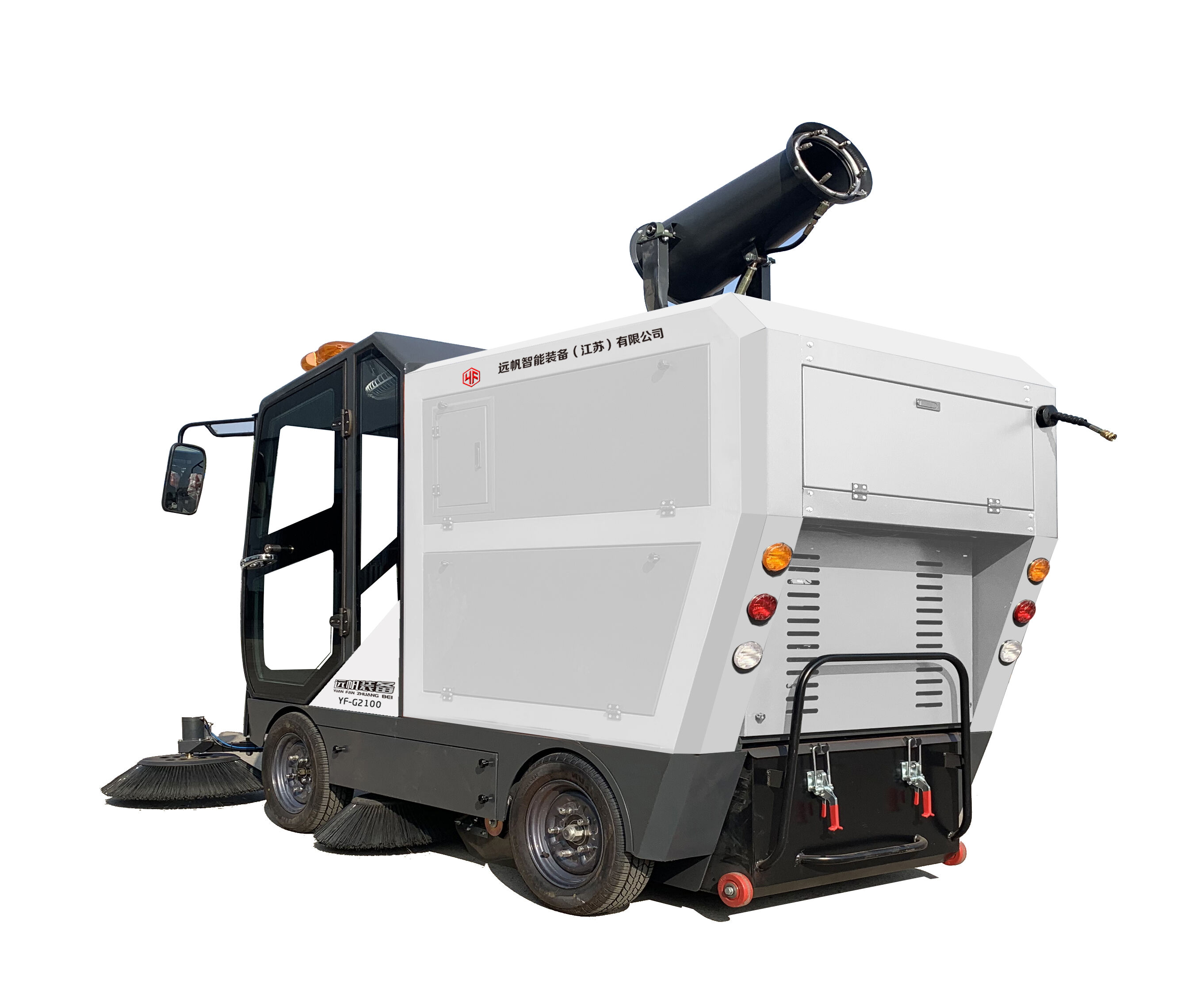Introduction
The findings have important ramifications for cities worldwide where air pollution is an issue and dust loading or discharge of dust from roads is becoming a problem. Road dust, defined by particles produced by tire wear and braking mechanisms, has long been regarded as an environmental challenge in terms of substance release to the environment and human health impacts. One method of tackling this challenge is to use road sweepers. These machines are essential for reducing air pollutants — road dust and other powdery materials from other urban practices to pick up and remove.
Impacts of road dust on air pollution
Road dust is an environmental matrix which introduces different kinds of pollutants into the environment, including heavy metals, polycyclic aromatic hydrocarbons (PAHs) and particulate matter (PM). When vehicular movement or wind drives these soot particles ge replaced to the atmosphere they then contribute along with others, further increasing air pollution. Infants and the elderly are most vulnerable to long-term exposure of these pollutants, which could lead to respiratory illness, heart disease and premature death number.
What Role Do Road Sweepers Play In Controlling Air Pollution?
Road sweepers are used with the motive that dust and debris do not settle on roads as this cuts back expenditure incurred by them for keeping particulate matter in suspensions through air. Road sweepers essentially work on the same principles; brush systems which run alongside the road to determine what debris is swept up and taken back into a holding chamber, rather than being emptied out. Modern road sweepers enter debris from the streets that they pick up with inexpensively, though inefficient process of street cleaning; contemporary avenue swept letters and rubbish to a most throw waste bin at the back of the vehicle after loosely knocking sewerage and parts.
Sweeping Roads with Cutting Edge Technology
Since then, road sweeper technology has evolved to include high-efficiency filtration systems and advanced sweeping techniques and, in some cases, the ability for you to GPS monitor where your sweepers are at all hours of the day. These improvements provide easier particle removal and subsequently are beneficial routing as well as protection of Normal cleansing place.
HEPA filters are another common sight with road sweepers to capture the dust and debris and ensure that it is retained as opposed to being dispersed back into the surrounding air. The advanced sweeping techniques, such as oscillating brushes and variable brush pressure will further increase dust collection efficiency on a wide range of road surfaces.
GPS and monitoring system tracks the location and effectiveness of each sweeper in real-time, thereby not only ensuring that an optimal cleaning endeavour is taking place but also protect against failing to satisfy environmental regulations.
Road Cleaner Effect on Air Quality at a Macro Scale
Road sweeping is known to help with air quality. By taking up particulate matter on all roads, Sweepers are helping to lower the concentration of such pollutants in in the total environment. Besides enhancing the air quality, it also improves visibility and traffic safety.
Along with reducing the levels of air pollution in cities, road sweeping is also part of a comprehensive set of environmental policies cities are utilizing to mitigate emissions and progress towards a more sustainable urban landscape. Then, same cities those promise to improve public health and reduce the pollution can take follow through by bringing road sweepers into their environmental management plans.
Case Studies of Successful Road Sweeping Programsanswer
Indeed, some regional cities have measurably improved air quality due to implementing road sweeping programs. It worked, to the tune of more than a 50 percent reduction in PM2·5 in the air, enough to alleviate respiratory illnesses and other effects. And some of the same rewards have occurred in other cities, such as Los Angeles and Barcelona, where similar programs yielded less air pollution and improved public health.
Challenges and Limitations
I summarized the boost in sweeper tasks, but they also come with challenges such as limitations. Sweeping consistently and often is essential to maintaining air quality, but logistical challenges and tight budgets typically hinder this. Poor weather also can affect this, for example rain or high winds (which will require more road sweeping).
Conclusion
Road sweeper are an simplest measures to combat air pollution in cities. More efficient road dust and Particulates will lead to improved air quality hence public health. As cities grow and pressure mounts for a cleaner planet the street sweeper appears to be an integral line of defence in future strategies for coming cities.
Table of Contents
- Introduction
- Impacts of road dust on air pollution
- What Role Do Road Sweepers Play In Controlling Air Pollution?
- Sweeping Roads with Cutting Edge Technology
- Road Cleaner Effect on Air Quality at a Macro Scale
- Case Studies of Successful Road Sweeping Programsanswer
- Challenges and Limitations
- Conclusion
 EN
EN
 AR
AR
 FR
FR
 HI
HI
 JA
JA
 KO
KO
 PT
PT
 RU
RU
 ES
ES
 IW
IW
 VI
VI
 TH
TH
 MS
MS

